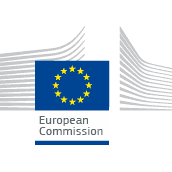
MSCA International Cooperation 2021
Deadline: Oct 5, 2021
CALL EXPIRED
CALL EXPIRED
International Cooperation
Education and Training
Higher Education
Horizon Europe
Research
Fellowship
Expected Outcome:
Project results are expected to contribute to the following outcomes:
- Broader and more strategic promotion of international cooperation opportunities offered through MSCA;
- Monitoring progress, opportunities and challenges in MSCA bilateral and bi-regional cooperation with main international partner countries and regions;
- Strengthening complementarities with other relevant promotion and cooperation initiatives funded through Horizon Europe or other EU programmes.
Scope:
The objective is to foster international cooperation in MSCA in Horizon Europe, through a dedicated support action to complement and ensure coordination between existing promotion channels at local level, and ensure consistency with formal R&I policy dialogues at bilateral and regional levels. Focus should be given:
- At bilateral level on countries having concluded bilateral Science and Technology Agreements with the EU (Algeria, Argentina, Australia, Brazil, Canada, Chile, China, Egypt, India, Japan, Jordan, Korea, Mexico, Morocco, New Zealand, Russia, South Africa, Tunisia, Ukraine and the United States).
- At regional level, on bi-regional research and innovation policy dialogues, established notably with the African Union, ASEAN, LAC, Mediterranean partner countries, Eastern Partnership countries and Western Balkans.
Based on the outcomes of a study[1] on the MSCA international dimension in Horizon 2020, activities to be implemented should include:
- Policy support to bilateral/bi-regional cooperation: assessing main cooperation trends, opportunities and challenges related to local developments in the R&I/higher education domain; identifying possible gaps versus joint priorities and participation of prominent local stakeholders; reviewing existing cooperation mechanisms (info relays, training, co-funding schemes) relevance and efficiency for MSCA; identifying main existing or planned cooperation initiatives to build upon, as well as major local players, networks and associations to be prioritized; qualitative monitoring of the participation in the different MSCA calls; preparing background reports ahead of joint committee meetings and regional dialogues; providing contributions to newsletters and periodic reports from existing information relays, e.g. Euraxess Worldwide, EU Delegations.
- Promotion of MSCA cooperation opportunities: identifying main local/bilateral or bi-regional events to target for MSCA promotion and opportunities for ad-hoc events co-located with bilateral/regional policy dialogues; liaising with local MSCA info relays, including local NCPs, Euraxess Worldwide offices, EU Delegations/S&T Counsellors, National Erasmus+ Offices, Enterprise Europe Network and other stakeholders/association representatives to identify coordinated promotion plans; organising MSCA promotion and training sessions (including through the physical participation of EU trainers when relevant); liaising with the EU NCP coordination platform to coordinate promotion activities with MSCA NCPs
- Cross cutting activities: analysing consistency with EU R&I bilateral and bi-regional, cooperation roadmaps and action plans, people-to-people dialogues, synergies with promotion events and activities related to Horizon Europe, including ERC or COST and other EU programmes (in particular Erasmus+).
The expected duration of the action is 36 months.
Public link: Only for registered users
 Horizon Europe
Horizon Europe
Please Log In to See This Section